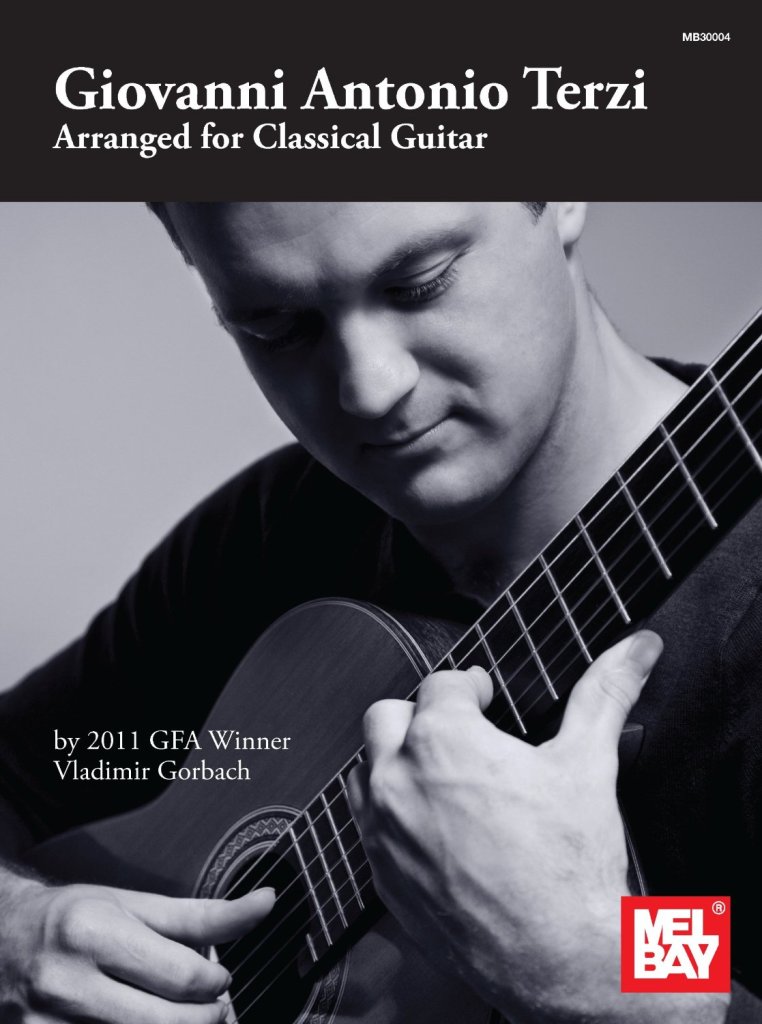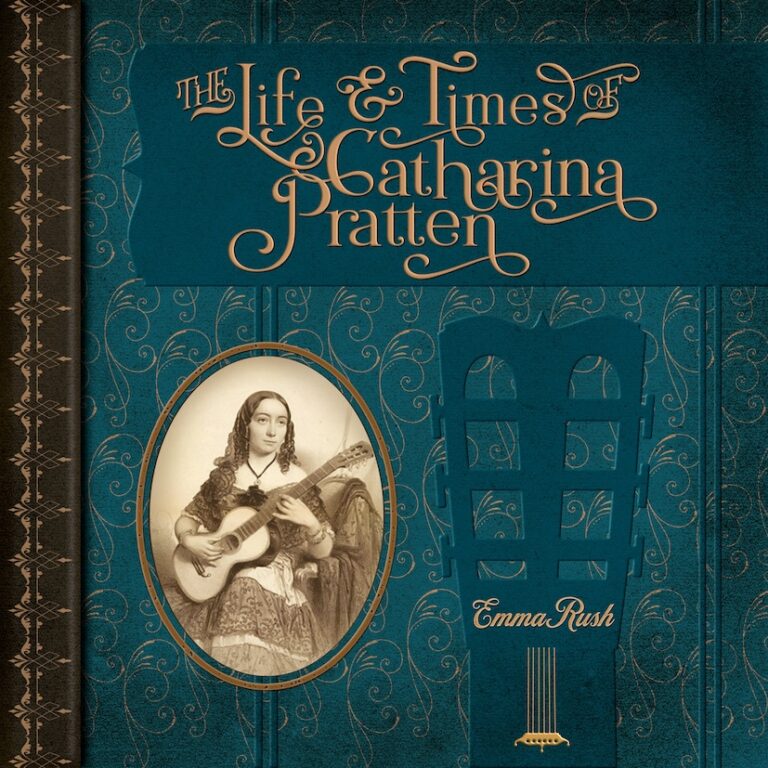
Buy or Learn more via Amazon:
Giovanni Antonio Terzi: Arranged for Classical Guitar
From the Publisher (Mel Bay):
These selected works by Giovanni Antonio Terzi represent a last flowering of the lute fantasia in a motet-imitative style. They stand at a halfway point between being dependent upon vocal forms and being a product of pure instrumental fantasy. Of the sixteen pieces with “fantasia” in the title, eleven are of Terzi’s own invention. Five fantasias are attributed to other composers (nos. 13-17) as indicated in their titles, and adopted for solo lute by Terzi. When arranged for guitar, something special about the character of these fantasias emerges through the instrument. In addition, they are all wonderful works that offer many musical and technical lessons for guitarists.
Pages: 68
Binding: Saddle Stitched
Size: 8.75 x 11.75
Publisher: Mel Bay
Here’s the contents:
Preface
Biographical Notes
Fantasia Prima
Fantasia Seconda
Fantasia Terza
Fantasia Quarta
Fantasia Quinta
Fantasia Sesta
Toccata (Prima) del’autore
In te Domine speravi
Preludio del’autore
Fantasia (Prima) del’autore
Toccata Seconda del’autore
Fantasia seconda del’autore
Fantasia terza del’autore
Fantasia (Prima) in modo di canzon francese del’autore
Fantasia seconda in modo di canzon francese del’autore
Fantasia (La Diodatina) inn francese del (Giosefo) Guami
Un’altra fantasia del detto (Giosefo Guami)
Fantasia in modo di canzon francese di Giovanni Gabrieli
Un’altra fantasia di Paolo Justi (Giusti)
Fantasia come di sopra (ca francese) di Vicenzo Bellaver
Review:
I’m not always excited when I receive books to review but this one was a treat! Not only do I love this time period for lute music but I love the Italian material. Not much is known about Terzi but here’s a nice blurb I found over at Naxos:
The lutenist, singer and composer Giovanni Antonio Terzi lived in Bergamo. He is known for his two books of lute tablature printed in Venice in 1593 and 1599, containing some of the most technically demanding pieces for the lute. Many of these are arrangements of music by other composers, skilfully designed to display his own virtuoso ability as a performer, with his own style of variation and embellishment.
The works in this book come from Terzi’s Libro Primo and Secondo. The works include Terzi’s original works but also arrangements of a few motets from other composers. As the author, recent GFA Winner Vladimir Gorbach, states in his preface, “Lute players, especially amateurs, often regarded Terzi’s music as being unnecessarily complex. In fact, some of the lute works in the second book do require considerable virtuosity.” This is partly due to the highly imitative nature of the counterpoint. If you are unfamiliar with the style you can think of motets from the period or Francesco da Milano’s (1497–1543) works where the counterpoint is similar to playing a fugue but without the Baroque conventions and more imitative of vocal compositions. Here, compared to da Milano the flourishes and embellishments are a bit more free than the slightly more direct da Milano. This would be a great thing to programme if you were looking at the Italians of the period. The two voice textures are generally easier to handle but when a third voice comes in it gets tricky to maintain the independence of the lines. That said, the musical language is very pleasing and even if the performer not a virtuoso they can still find much pleasure in the works. In fact, they are very playable and students will be able to get through the easier works without too much difficulty, but again, bringing out the rich and complex counterpoint is the real musical challenge. A few of the works are primarily two voice writing but some of the later works in the book have many voices and the writing becomes very embellished with faster running lines or four voice textures. For these reasons I’d put the difficulty level of the book in the later-intermediate to advanced level.
This is an excellent edition with great fingerings. Gorbach is one of the recent GFA winners that I’ve really liked as he has a musical maturity and balance to his playing. This edition by Mel Bay offers a clean score with minimal fingering but always when it’s most needed. Both right and left hand fingerings are included and give you everything you need.
This release by Mel Bay and recent GFA winner Vladimir Gorbach is an excellent edition and a superb value. The clean and well fingered score makes reading the music a joy. The collection itself is very welcome as the music from Terzi and his Italian contemporaries is sometimes overlooked despite it’s obvious beauty and musical value.
Buy or Learn more via Amazon:
Giovanni Antonio Terzi: Arranged for Classical Guitar




